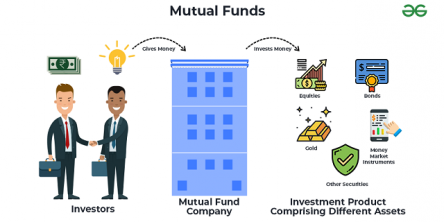An Introduction To Credit Ratings

If at any point in your life you have applied for a credit card, started a phone contract, took out a loan, financed a car, leased a flat or bought a house—chances are, someone checked your credit rating. But, what is a credit rating – and why is it so important?
What Is Your Credit Rating?
Sometimes called a ‘financial CV’, your credit rating is a three-digit number which lenders use as an indicator for your financial trustworthiness. Essentially, the higher the number, the more likely you will be (in the eyes of the lender) to pay off your loan on time.
If your credit rating is high, not only you will be approved for loans and mortgages in the first place, but you will also get the best deals. Essentially, the higher your credit rating, the lower the risk you are. The lower risk you post, the lower you’re your APR will be.
On the other hand, if your rating is very low, lenders will reject you for any credit cards, loans or mortgages you are applying to.
Your Credit Rating is calculated by a Credit Reference Agency (or CRA), who gather information about your credit history and compiles it into a credit report, as well as calculating your credit rating. When you’re applying for a loan and lenders want to determine how likely you are to pay it back on time, they will ask the CRA for access to your credit report and/or rating.
Who Determines Your Credit Rating?
In the UK, there are three main Credit Reference Agencies (CRAs), namely Equifax, Experian and TransUnion (formerly Callcredit). Each of these uses their own algorithms, data sets and scales to calculate your credit rating. So technically, you don’t just have one credit rating, you have three—and it is likely that they will look fairly different. This also means that, no, you are not able to calculate your credit rating by yourself.
While Equifax ratings you out of 700, TransUnion ratings out of 710 and Experian out of 999. Since different banks and lenders use and report to different CRAs, you shouldn’t be surprised if say, your Experian rating is 999, but your Equifax rating is only 610. Each company calculates your rating differently, and they don’t all have access to the same data about you.
While this may seem complicated, the most important point to keep in mind is this: the factors that influence whether your credit rating goes up or down are largely the same. So, regardless of what the actual numbers say, your actions will be reflected in them similarly.
So, What Actually Influences Your Credit Rating?
Here are some of the main factors which will influence your credit rating:
- How much you currently owe to various parties.
- This one seems obvious, but it’s not as easy as ‘the less you owe, the better’. Lenders want to know that you can responsibly manage credit and that you stay on top of your payments. What is important is your current debt balance compared to your credit limit. Owing £500 out of £10,000 (20% owed) is more favourable than owing £500 out of £1000 (50% owed).
- The length of your credit history.
- Perhaps surprisingly, someone who has never taken out a loan is likely to have a worse credit rating than someone who has taken out several loans but always paid them off. To lenders, a long and diverse credit history shows that you can manage and pay off loans responsibly, regardless of the circumstances, which means you are more than likely to do so again.
- Whether there are any late or missed payments on existing or past credit card or loan accounts.
- These will stay on your accounts for six years. Although if they are quite old, their negative impact won’t be as serious. These missed payments cover everything from things like rent payments to mobile phone contract payments.
- Whether your home has been repossessed or you have moved away while still owing money, as well as any major court filings, such as bankruptcies, Individual Voluntary Arrangements (IVAs), or County Court Judgments (CCJs)
- These are quite serious and will stay on your account for six years.
- The number of credit enquiries.
- A credit enquiry happens when a lender asks to take a full look at your credit report and rating, which happens anytime you apply for a loan or mortgage, or—sometimes—when you open a new utility account or start a new phone contract. These ‘hard searches’ stay on your account for 12 months for other prospective lenders to see, as they are an indication of how many loans you have applied for. Too many credit enquiries may be an indication that you are desperate for credit, making you a less trustworthy borrower in the eyes of the lender.
What Doesn’t Influence Your Credit Rating?
- The amount of money in your current account
- Your salary
- Your savings accounts
- Student loans
- If you have a criminal record
- Your medical history
- Parking or driving fines
- Council tax arrears
Additionally, keep the following in mind:
- There is no such thing as a ‘credit blacklist’.
- While your rating may not be ideal, that does not mean that you will be rejected for every loan application—and just because you get rejected for one, does not mean you will be rejected for all.
- Do keep in mind though that too many applications will negatively impact your rating, especially if done over a short period of time.
- Credit reference agencies do not decide the outcome of your credit applications—lenders do.
- Your credit rating is not affected by the financial status of those you live with unless you have a ‘financial connection’ with them—i.e., a joint bank account or joint mortgage application.
How To Improve Your Credit Rating
A healthy credit rating is important, so if you are worried about yours, there are a few things you can do to maintain or improve yours:
- Make sure you are on the electoral roll. Not only does this make it easier to confirm your identity, but it also shows that you are settled, which is a sign of stability.
- Pay off your current debt. Ideally, use up less than 30% of your rolling credit at any time. Also, having a credit card with a high credit limit will reflect positively on your credit rating, as it demonstrates that you have been trusted to manage this level of credit responsibly.
- Never miss a payment.
- Set up direct debits or put monthly reminders on your calendar to ensure that you always pay your bills on time.
- Avoid multiple credit enquiries.
- Before making a formal loan or credit card application, you can check your eligibility using a ‘soft search’. Such personal searches do show up on your credit report but are only visible to yourself and have no impact on your credit rating.
- Make sure your report is correct.
- This includes names and addresses, but also factors like debt levels and account status. If there are any accounts missing, especially ones you have been handling well, make sure to have them added to your report, as they will positively impact your credit rating.
- If you have no credit history, you will automatically be a less reliable lender as there is no proof of you being able to pay off loans well.
- To improve your rating, you can use a credit builder card, which is a credit card with low credit limits and high interest rates—use it responsibly and always pay it off in full to build up your credit rating.
What To Do Next
Now that you have an overview of what a credit rating is, how it is calculated, and what you can do to improve it, it’s time for some concrete action.
Viewing your credit rating and credit report has no impact, in fact, it is recommended that you check your credit rating with each of the three CRAs regularly (at least once a year). You can either get free statutory one-off reports or use external companies which let you access your rating, and sometimes full report, for free.
When viewing your report, make sure that all your accounts are listed and that there are no mistakes anywhere. Do keep in mind that not all banks and lenders report to the same CRAs, so if you are missing anything, be sure to contact your bank/lender to find out who they report to first.
Keeping your credit rating healthy helps you to future-proof your finances and makes sure that you will always get the cheapest rates on loans, mortgages and credit cards, saving you money in the long run.
Similar Articles
Most business owners set up their first business banking account without a second thought. They go with whatever bank they personally use, or whatever bank their accountant mentions - and done deal.
Outsourcing debt collection boosts recovery rates, ensures compliance, and preserves client relationships—freeing your team to focus on core business tasks.
Save money on home & business essentials with bulk wholesale! Discover tips, product categories, and deals to maximize your savings.
Loud budgeting has taken over social media, with people openly discussing spending habits, saving strategies, and financial struggles. While this trend encourages transparency, it also adds pressure to meet certain expectations
Securing your financial future has become a necessity in today's world, and investing in mutual funds is one of the most popular ways to grow your wealth over time. Managing your money and investing in potential funds has become convenient and seamless with the help of the right online platforms
Gone are the days when you had to carry a wallet full of money when traveling somewhere. Now, cashless travel has become a reality due to technological developments, making it easier for travelers to manage their cash when they’re out and about.
Discover how ACH and eChecks revolutionize payments—offering cost-efficiency, security, and convenience while addressing cybersecurity challenges and future trends.
NPS (National Pension Scheme) is a popular option for those looking to save for retirement and get a steady income through an annuity after retirement. It is supported by the Indian Government and is based on contributions made regularly. The final pension will depend on the money that you build by the time of retirement and the portion used to purchase an annuity.
Debt collection can be stressful for both the debtor and the creditor. Howеvеr, undеrstanding thе tactics commonly usеd by dеbt collectors can help you protеct yoursеlf from potential lawsuits. Whether you’re a business owner collecting unpaid invoices or an individual dealing with personal debt, being informed about the legal and ethical boundaries of debt collection is crucial.









